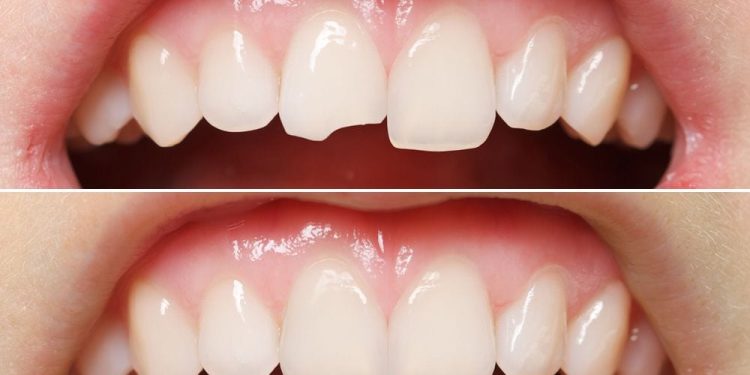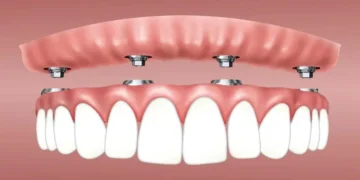When it comes to sprucing up your beaming smile, tooth bonding swoops in as a dental superhero. Swift, effective, and not nearly as wallet-crushing as some of its cosmetic comrades! But what’s the deal with the price tag?
It’s not like there’s a one-size-fits-all price sticker you can glance at while strolling down the oral health aisle. The cost of tooth bonding swings more than a pendulum based on various factors that can play swing ball with your budget.
Let’s chew down into the crunchy details. Find out what makes tooth bonding’s cost as variable as our beloved weather forecasts.
Table of Contents
What Is Tooth Bonding?
Before diving into the cost, let’s briefly cover what tooth bonding entails. Tooth bonding is also known as dental bonding or composite bonding. It is a cosmetic dentistry procedure where a tooth-colored resin material gets applied and bonded to teeth using a special light.
This helps improve the appearance of chipped, cracked, stained, or misshapen teeth. Tooth bonding is one of the most affordable and least invasive cosmetic dental procedures available. It makes it a popular choice for many individuals looking to improve their smile.
Factors That Affect the Cost of Tooth Bonding
Now, we have a basic understanding of what tooth bonding is. Let’s explore what factors can influence its cost.
Location
As with most products and services, location plays a significant role in the price. Dental practices in urban areas tend to have higher overhead costs. This is usually reflected in their pricing for tooth bonding.
Complexity of Bonding Procedure
The complexity of the bonding procedure can also affect its cost. For example, bonding multiple teeth will naturally be more expensive. Similarly, extensive damage or imperfections on a tooth may need more time and resources, resulting in a higher cost.
Technique and Materials Used
The technique and materials used can also impact the cost of tooth bonding. Different techniques may require different levels of skill and equipment. This can affect the price.
Additionally, the quality of the materials used can also affect the cost. Higher-quality materials typically result in a higher price.
Experience and Reputation of Dental Professionals
The experience and reputation of the professional can also factor in. A highly skilled and well-known dentist may have higher fees for their services compared to a less experienced dentist.
The label Cosmetic Dentist also often implies an expert specializing in beautifying smiles. This can sometimes warrant a premium fee for tooth bonding services.
When seeking tooth bonding, asking about the consultation fees first is worthwhile. This is to ensure you receive quality care tailored to your aesthetic goals.
Dental Insurance Coverage
In some cases, dental insurance may cover a portion of the cost of tooth bonding. However, this will vary depending on your specific insurance plan and coverage.
It’s essential to check with your insurance provider beforehand. That way, you can see if tooth bonding is covered and what percentage they will cover.
Smiling Smart: Weighing Your Tooth Bonding Investment
As we tackle the cost of tooth bonding, it becomes clear that the investment can fluctuate significantly. This is why proactive research and discussions with your dental professional are crucial.
Understand the multiple threads that tug at the cost of tooth bonding. That way, you’re stepping forward to a bright smile with clarity and confidence.
Remember, a tailored approach to dental aesthetics isn’t just about the upfront expense. It’s an investment in your long-term dental health and self-assurance.
Looking for more tips and ideas? We’ve got you covered. Check out some of our other posts now.


 Home
Home









